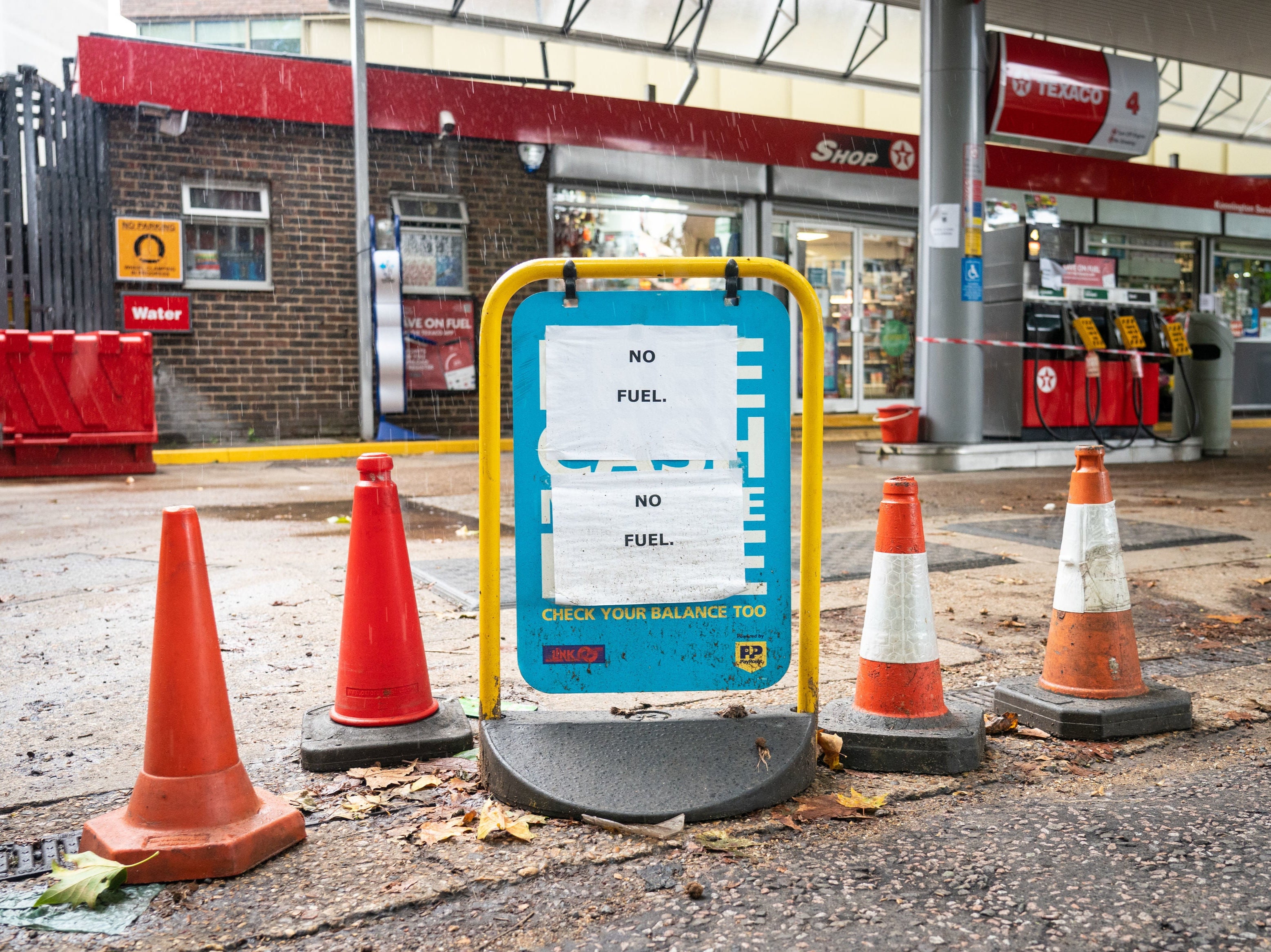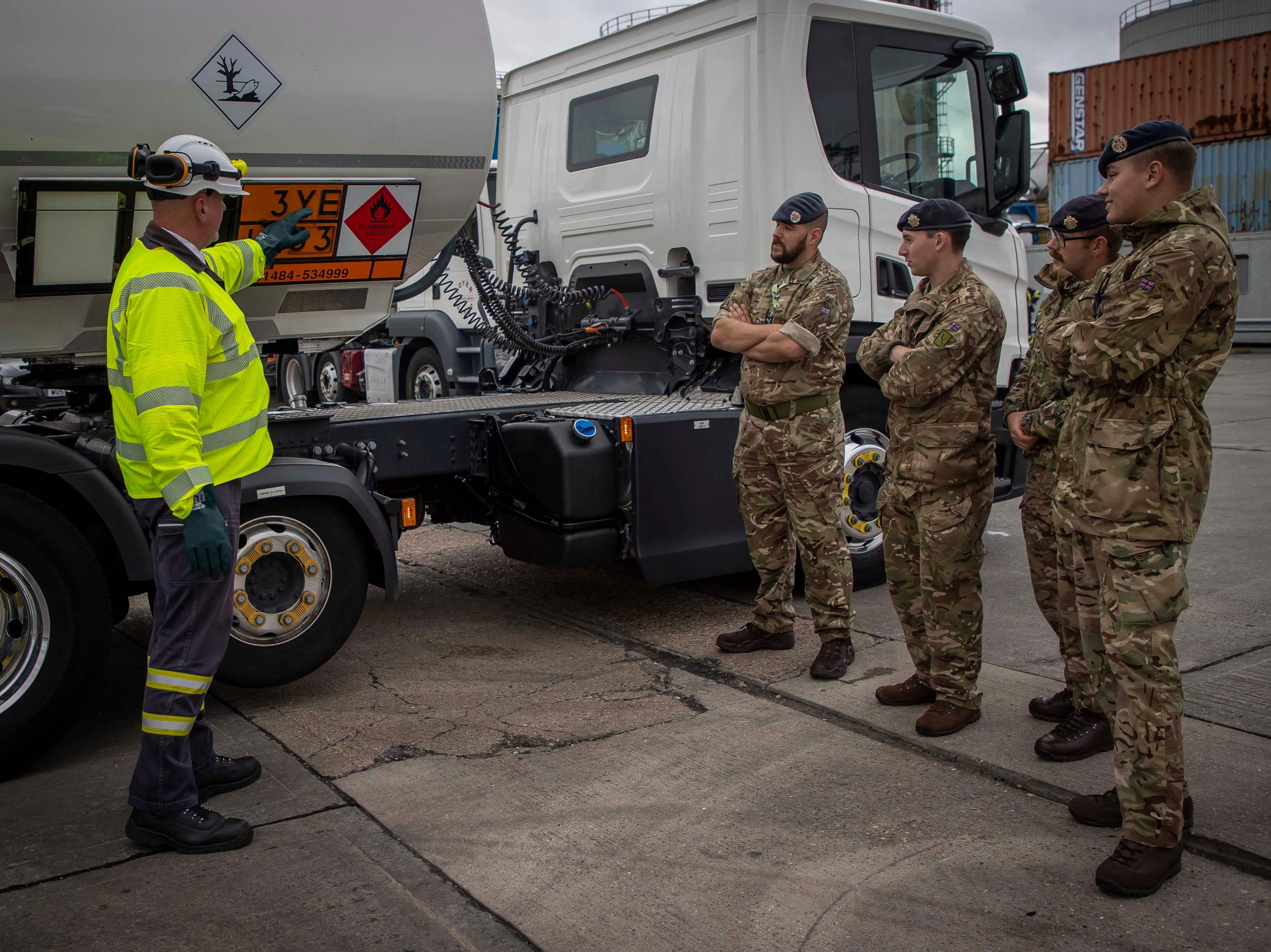Fuel shortages: 13% of independent petrol stations in London and southeast remain empty
Some forecourts still waiting days for deliveries despite crisis beginning to ease

Your support helps us to tell the story
From reproductive rights to climate change to Big Tech, The Independent is on the ground when the story is developing. Whether it's investigating the financials of Elon Musk's pro-Trump PAC or producing our latest documentary, 'The A Word', which shines a light on the American women fighting for reproductive rights, we know how important it is to parse out the facts from the messaging.
At such a critical moment in US history, we need reporters on the ground. Your donation allows us to keep sending journalists to speak to both sides of the story.
The Independent is trusted by Americans across the entire political spectrum. And unlike many other quality news outlets, we choose not to lock Americans out of our reporting and analysis with paywalls. We believe quality journalism should be available to everyone, paid for by those who can afford it.
Your support makes all the difference.More than one in eight petrol stations in and around London remain empty despite fuel shortages beginning to ease elsewhere, according to an industry boss.
The Petrol Retail Association (PRA) said its daily poll showed 13 per cent of independent retailers in the capital and southeast - the region worst hit by the crisis - were still dry on Wednesday.
The figure is an improvement on Tuesday’s 15 per cent and Sunday’s 22 per cent, however some forecourts have been left waiting four days for delivery.
Gordon Balmer, executive director of the PRA, said: “This is leaving some motorists continuing to feel insecure about fuel availability at their local neighbourhood filling stations.
“Independent forecourts report a complete lack of visibility as to when their next delivery might arrive, and some have been dry for four days and still waiting for a delivery.
“We have yet to see any explanation from the government of the benefits arising from the suspension of competition law between the major oil companies in the delivery of downstream fuel.
“We need to restore a competitive market with incentives for those who deliver on the job.”
Mr Balmer said some businesses had been forced to throw away fresh produce as the ongoing fuel crisis had also caused shop sales to plummet by between 20 and 50 per cent.
“Most independent retailers have built a reputation with their local customers for reliable service, good facilities and a well-stocked convenience store,” he said.

“Sadly retailers have been throwing away large quantities of fresh produce as the ‘closed’ sign has deterred not just forecourt business but shop sales too, with some quoting reductions in non-fuel sales of between 20 and 50 per cent.
“Attempts by the government to deal with this fuels crisis, now into its fourteenth day, have thus far had only limited success in London and the southeast.
“Much more attention on this issue affecting this region is urgently needed.”
Number 10 on Monday said it was “hard to put a specific date” on when fuel supplies would return to normal – but insisted the situation was improving.
It came as army tanker drivers started delivering fuel to petrol stations in a bid to ease shortages as Operation Escalin got underway.
The troops were set to be concentrated in London and the southeast, where the worst fuel shortages remain.





Join our commenting forum
Join thought-provoking conversations, follow other Independent readers and see their replies
Comments